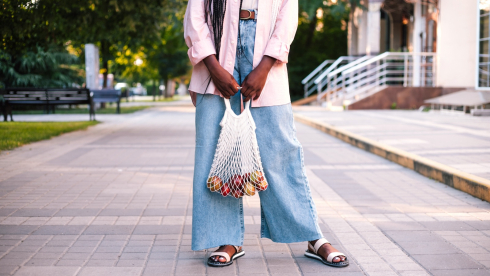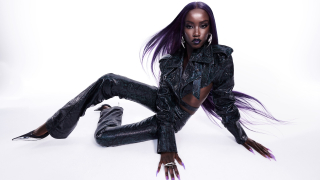It seems that every few years we have some version of a debate about this word. It is probably the most discussed word in contemporary American society. And yet most publications won’t even print it.
Nigger.
In recent weeks the word and its cousin, “nigga” have been a hot topic. The National Football League is considering banning it, ESPN did a special considering it's meaning, television commentator Roland Martin has written an article calling on folks to stop using the word, and recent Oscar-winning screenwriter John Ridley's 2006 Esquire article reviving some version of the "niggers vs. good Black people" debate has been reissued. It's been a lot.
At the heart of these debates are three dynamics: First, there are those who remind us of how truly awful the word has been in our history, those who recall that the word carries the residue of slavery and Jim Crow segregation, lynching, and disfranchisement. Folks who do not want us to forget that this word is not our friend. Then there are others who argue that a younger generation has reclaimed the word. By dropping the “er” and using an “a,” it's changed from a word of hatred into a sign of community. Then finally white people wonder why, if the word is so harmless within the Black community, they can't say it too? Or at least rap along with it in songs. Some hip hop artists say this is okay (I'm thinking here of Kanye West's support of Gwyneth Paltrow's tweet calling Jay Z and Kanye "ni**as in Paris for real"). While others insist that cross-racial use of the word “nigga” isn't acceptable under any circumstances and that somehow the Black community has ownership over the word. And we wonder why white folks would be so excited about the possibility of saying nigger in the first place. This whole debacle makes the first group say, “See, I told you it was just a slur.” Wash, rinse, repeat.
Most of us think this is new problem, but we've been here before. Let's recall that when the White author Carl Van Vecten published his 1926 guide to the Harlem Renaissance, Nigger Heaven, it divided Black artists and writers, with some defending his use of the word as fair and the book as important while others were horrified by a betrayal of trust by an outsider who had been invited into Harlem’s Black intellectual community. W.E.B. DuBois called the book “a blow to the face” and “an affront to the hospitality of Black folk.” Van Vecten was using the term “nigger” the way he had heard it used within Black circles of friends within the community. Sharing the term with the world felt natural to some artists, and like an affront to others. But this moment doesn't just make me think of literary history. It makes me think about my personal history.
I think about my father and my maternal grandfather. My father, born in the 1930s in Philadelphia, and coming of age in the 1950s absolutely hates the word. He vowed that it would never be said in his household or around me as I grew up. It was a specific political choice.
My grandfather, born in the 1910s in Jim Crow Georgia, the son of a sharecropper who came of age during the Depression, heard the word in its most awful context as a boy growing up and as a man migrating north and facing de facto segregation in the carpenter's union. Yet my grandfather liked to use the word in reference to folks he did not like. He seemed to take pleasure in having the word at his disposal. In part because he liked wordplay, he played with the word. Perhaps it was reclamation of sorts.
This difference of philosophies on the word came to a head one Sunday afternoon. My grandfather used the word in front of me. I could see my father's anger crackling just beneath the surface, and my grandfather's sly pleasure, as he looked at my father. It wasn't the first time is heard the word used. It had been hurled at me during arguments with white classmates; it would slip out of their mouths in place of the word "tiger" during “eenie, meenie, miney, mo.” However, there was something different about two black men silently debating the word, something so telling about this clash.
When we debate the word now, we generally suppose that there is something new about our discussions, something novel about our current discussions. When we talk of the history of the word, we generally mean the history of the word as racial epithet and slur. And indeed, resistance to the word as the most terrible of slurs is old. It is at least as old as DuBois' rejection of Van Vechten's book. It is as least as old as my father's civil rights era decision never to use the word in his home.
The rejection of the word by my father also hints at the active use of the word in Black life. The word has a history as a playful and judgmental term within the veil of Black communities. My own historical research revealed that some turn of the century Black activists protesting the passage of segregation laws condemned those who were too willing to comply with white supremacy as “niggers.” My grandfather called folks that name if he thought they exhibited that “crab in the barrel” mentality. And he also used the word in jest and in play. It is important to remember that the history of the word is as messy as our current debate. In decades past, men and women who heard the word as slur and as a threat of violence in one arena also used it to jab at each other in another. Beginning in the 1990s hip hop culture made the use of the word within Black communities much more public, but it didn't start it.
In our current moment, I do not think there are easy answers to this problem. Some folks think that by setting clear rules they can protect themselves from the sting of the word nigger. Some think the rule should be to never say the word, others argue that you can say the word, but only within the Black community. Others are playing with the pronunciation, saying that the practice of using an “a” rather than an “er” takes the sting away. I’m not sure if language can ever work that way, as if one set of rules or another can ever protect us from the harm that comes when slurs are made common, everyday language. No one will ever own this word. We didn’t invent it. It’s older than all of us.
I'm not trying to argue to get people to embrace or reject this word—as if an essay could really do that. But let this be a reminder that none of this is as new as we think.
Blair L.M. Kelley is an associate professor of history at North Carolina State University; she is also the author of the award-winning Right to Ride: Streetcar Boycotts and African American Citizenship in the Era of Plessy v. Ferguson and the host of a podcast called Historical Blackness on TWIB.FM. Follow her on Twitter: @profblmkelley













